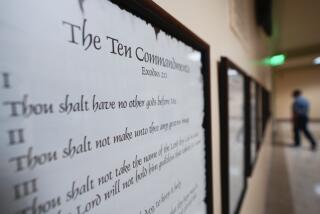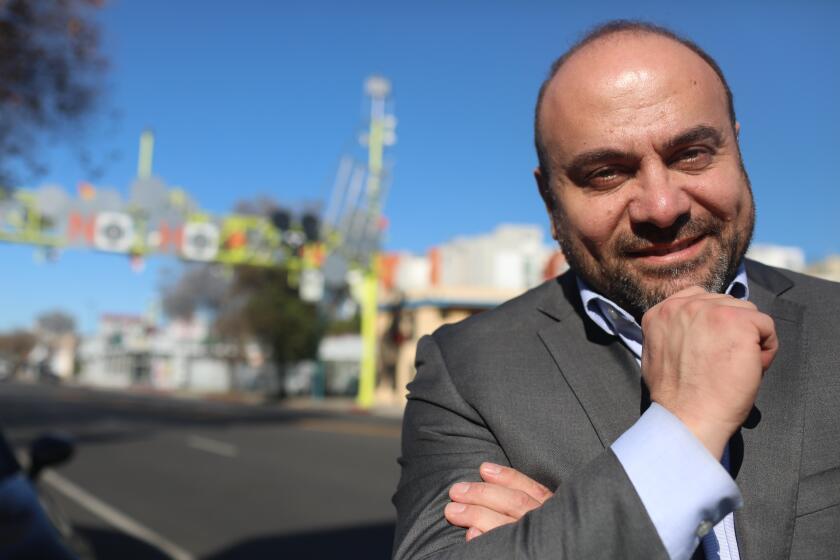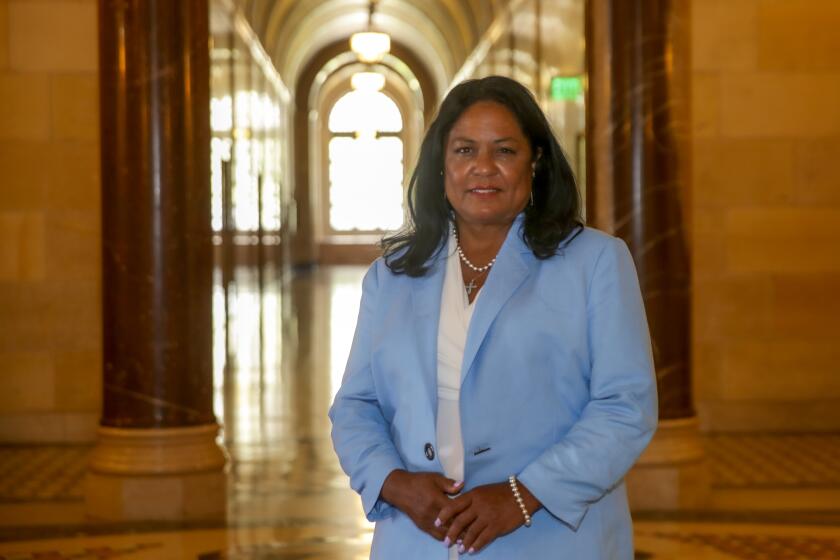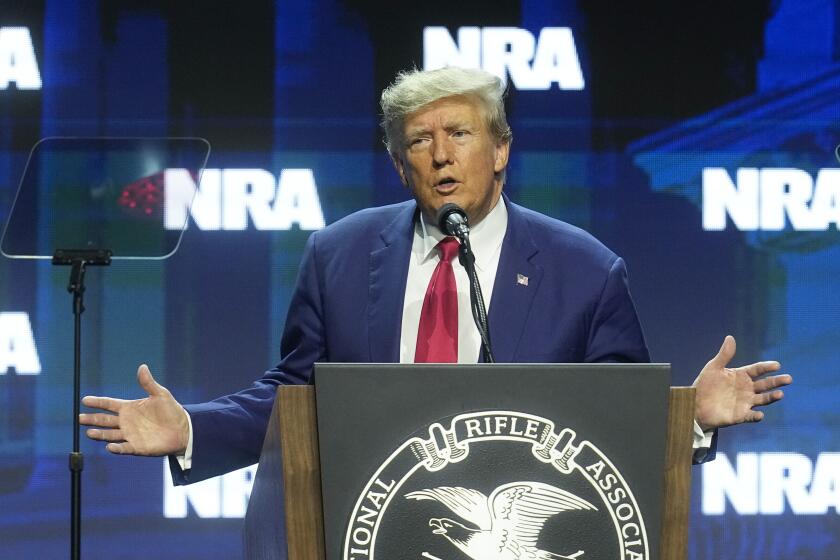The First AME Church lesson
The Rev. John J. Hunter of First African Methodist Episcopal Church is receiving forgiveness from at least some of his parishioners for failing to pay federal taxes and for using church credit cards to buy personal luxuries. But Hunter and other members of the clergy must remember that Congress and the Internal Revenue Service may be less charitably inclined when preachers stray from the path of fiscal righteousness.
In 2004, Hunter succeeded the legendary Rev. Cecil L. “Chip” Murray at First AME Church in Los Angeles, a bastion of the “social gospel” combining faith and good works. The city as a whole benefits from the church’s efforts to help provide affordable housing, food and legal services for the poor, and would suffer if Hunter’s financial problems were to undermine the church’s outreach programs or corrode its credibility.
So it’s good news that Hunter is negotiating with tax authorities to resolve his obligations, and that he and church financial officials have agreed that he will repay more than $100,000 in expenditures including family vacations, clothes and jewelry. The church also is instituting stricter accounting policies. Hunter now knows -- as other members of the clergy have discovered, sometimes too late -- that even preachers must render unto Caesar honest and transparent stewardship of the funds entrusted to them.
Although religious organizations derive many of their protections from the 1st Amendment to the Constitution, it’s Congress that has decided to exempt them (and other nonprofit organizations) from taxation. What Congress giveth, it can taketh away.
At present, religious organizations actually receive more leeway than other nonprofits when it comes to reporting compensation. Like a charitable foundation or a blood bank, a church must certify that compensation is reasonable, but it doesn’t have to file the same detailed paperwork about salaries. Government recognizes that a comfortable living for a pastor or bishop is viewed in some churches as both a matter of pride and a matter of faith.
That could change if the impression grows that churches -- or clerics -- are flouting the law. Sen. Charles E. Grassley of Iowa, the ranking Republican on the tax-writing Senate Finance Committee, has asked leaders of six mega-churches to hand over records of salaries, expense accounts, credit cards, cars and airplanes. Grassley has left little doubt that he disapproves of some clerical creature comforts. In an interview last year with The Times, he noted that Jesus rode into Jerusalem on a donkey, and asked, not unreasonably: “Do these ministers really need Bentleys and Rolls-Royces to spread the Gospel?”
More to Read
A cure for the common opinion
Get thought-provoking perspectives with our weekly newsletter.
You may occasionally receive promotional content from the Los Angeles Times.










